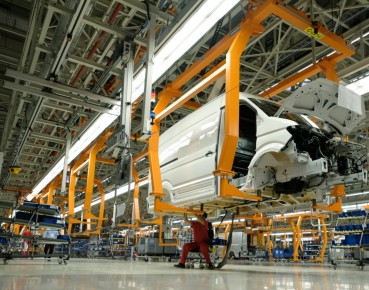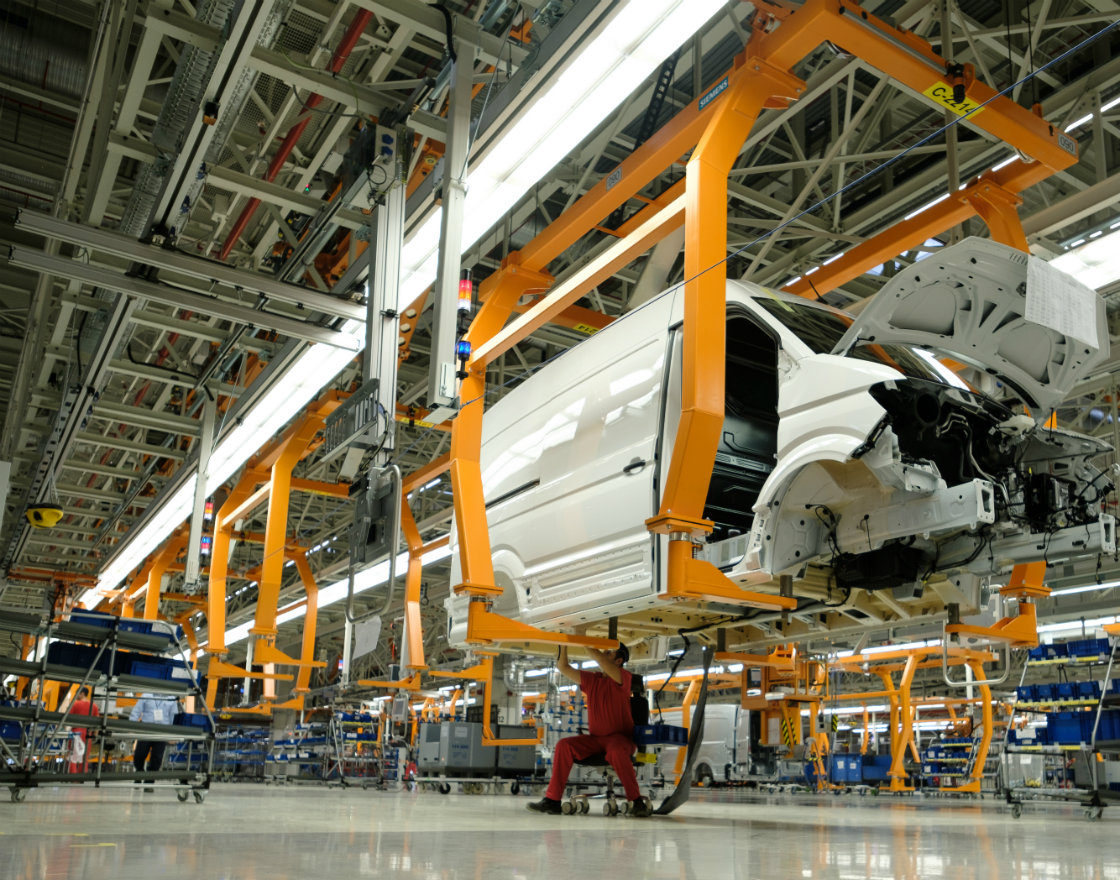Tydzień w gospodarce
Category: Raporty

Września, Poland (©Kārlis Dambrāns, CC BY 2.0)
The data of the German Association of the Automotive Industry (VDA) show that in 2019, 4,662 thousand passenger cars have been produced in Germany, the least since 1997. The decline in production is a result of a decreasing foreign demand. In 2019, 3,480 thousand German cars were exported, i.e. as much as 12.8 per cent less than in the previous year and 21.1 per cent less than in 2016.
Experts of the Polish Economic Institute remind that at the same time, car sales in Germany continue to grow. In 2019, 5 per cent more cars were registered than a year before.
The Eurostat data show that in the first three quarters of 2019, Germany exported passenger cars worth EUR98.5bn, a decline by 5.1 per cent as compared to the corresponding period of the previous year.
Contrary to previous estimates, the American-Chinese trade war could have had a limited impact on the decline in the demand for German cars in the United States and China. The sales of vehicles on these markets increased by 3.1 per cent and 1.5 per cent (y/y), respectively. On the other hand, exports of German cars to the United Kingdom decreased by nearly 6 per cent, due to the uncertainty associated with Brexit.
It seems, however, that the main driver of decreasing exports is the growing demand for cars powered by alternative energy sources and the insufficient matching of the offer presented by German corporations.
Among the largest customers of German cars, a two-digit drop in their sales in the first three quarters of 2019 was recorded in Australia (22 per cent decline y/y), Sweden (17.5 per cent), South Korea (16.5 per cent), as well as Canada and Spain (about 10 per cent each). Exports to Japan, Austria and Italy also decreased by several per cent.
The problems of the German automotive industry are already affecting the Polish Tier 1 and Tier 2 suppliers. In the first three quarters of 2019, the total value of Polish exports of automotive parts and accessories increased by 5 per cent (y/y), while a growth of only 2.1 per cent was recorded on the German market. Consequently, Germany’s share in Polish exports of automotive parts and accessories dropped to 31.6 per cent, compared to 35.9 per cent in 2016.
Among product categories, the sales of Polish internal combustion engines recorded the highest growth in Germany (by over 34 per cent, y/y). Exports of parts for electrical appliances and vehicles equipment increased by 7 per cent.
However, there are countries where the demand for Polish parts continues to grow. In the first three quarters of 2019, sales to France increased by 30.5 per cent y/y, mainly due to the increased engine exports.
A double-digit increase was also recorded in exports to Slovakia (23 per cent more), Austria (84 per cent), Russia (32 per cent), the United States (22 per cent) and Belgium (14 per cent).
The outlook for Polish suppliers of parts to German car factories is not promising. For the third consecutive year, the decline in car production is a result of the decreasing foreign demand for traditional German diesel cars.
Considering the fact that the central administrations of many countries pay more and more attention to electromobility, this trend will continue. This highlights even more clearly the need for a structural transformation of the automotive industry in Germany, which has so far proceeded relatively slowly.
A lower demand from German factories will largely translate into a deterioration of the standing of the automotive parts manufacturing industry. The reason is that nearly one-third of automotive parts and accessories exported from Poland is sent to Germany.


